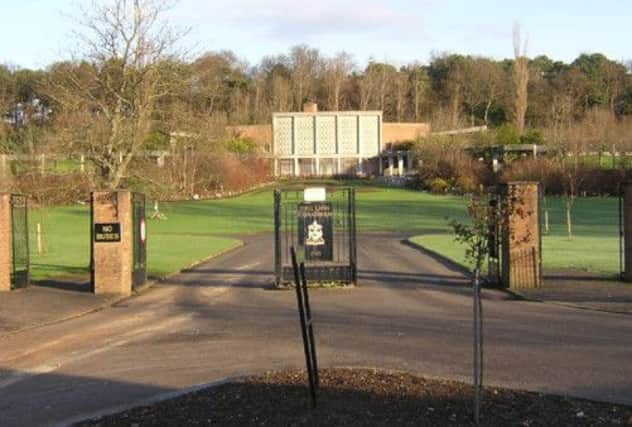Baby ashes scandal: Glasgow City Council apologise


Glasgow City Council, which has been implicated in the baby ashes scandal, said sorry as it published the findings of an audit of practices at its crematoria over the last 15 years.
It found that more than 2,000 infant cremations were carried out in its two council-run crematoria over that period. In one case, staff dispersed a child’s remains despite having been told to return them to the parents.
Advertisement
Hide AdAdvertisement
Hide AdIn 31 cases, or 1.3%, there was no clear instruction given to officials, or they have been unable to locate the paper records, the audit found.
The report related to both of the city’s council-run crematoria: Linn, near Clarkston, and Daldowie, near Uddingston.
It was carried out in the wake of the Mortonhall Crematorium scandal in Edinburgh, where it emerged in December that babies’ ashes were secretly buried for decades without the knowledge of their families.
Glasgow City Council said it was also contacted by parents whose children were cremated in the city.
The council published the report of the audit “to provide assurances” on the practices adopted in its crematoria in connection with the cremation of infants. It was carried out by the council’s head of audit and inspection.
Over the last 15 years 2,385 infant cremations were carried out at Linn and Daldowie. These related to non-viable foetuses, stillbirths and infants up to the age of 24 months, the report said.
In 1,886 of cases, or almost 80%, it was not possible to recover remains, the report noted.
In 303 cases, remains were recovered and returned to parents as requested, the council said.
Advertisement
Hide AdAdvertisement
Hide AdIn a further 164 cases, staff recovered remains and dispersed them in the garden of remembrance “as per the instructions (they) received”.
The remaining 32 cases were those already referred to, in which remains were dispersed when they should have been returned, or instructions were unclear or missing.
In around 96% of cases involving non-viable foetuses, it was not possible to recover remains. With stillbirths that proportion was around 20% and in cases of infant deaths was around 27%.
The audit also found that the forms used to apply for the cremation of a non-viable foetus ask the applicant to agree: “I understand there will be no identifiable remains.”
Glasgow City Council said this is inaccurate because remains are recovered in around 4% of cases. The audit recommended that the paperwork be amended to make this clear.
A council spokesman said: “The audit shows that we try to recover remains whenever we cremate babies and infants and that, in the vast majority of cases, we faithfully follow the instructions we are given.
“We will continue to work with families who want to know what happened to their children’s remains to help them get answers to their questions.
“While we will make some changes to our paperwork as soon as we can, we will await the outcome of the Scottish Government’s inquiry before we consider any major changes to our policies or practices.
Advertisement
Hide AdAdvertisement
Hide Ad“This has been incredibly distressing for families in Glasgow. There are undoubtedly cases where we dispersed children’s remains when that is not what their parents wanted and for that we are sincerely sorry.”
There have been growing calls from campaigners for a public inquiry into the baby ashes issue in Scotland.
Former high court judge Lord Bonomy was appointed this month to chair an independent commission on the approach to cremation of infants and the disposal of their ashes across Scotland.
Dame Elish Angiolini, a former Lord Advocate, is already chairing an investigation into practices at Mortonhall.